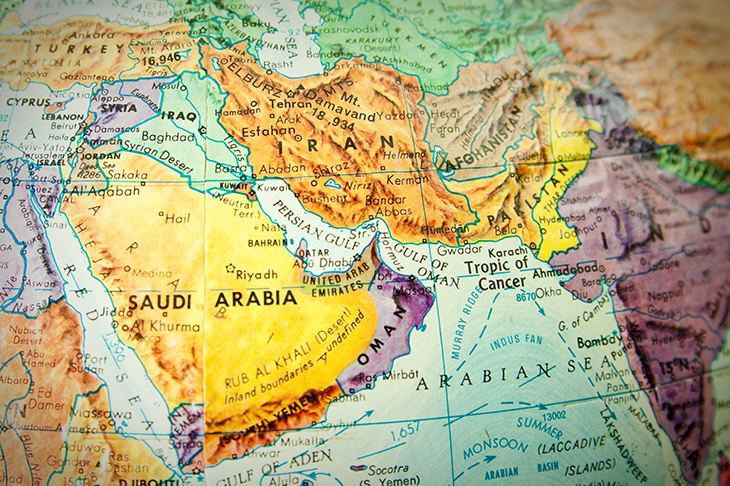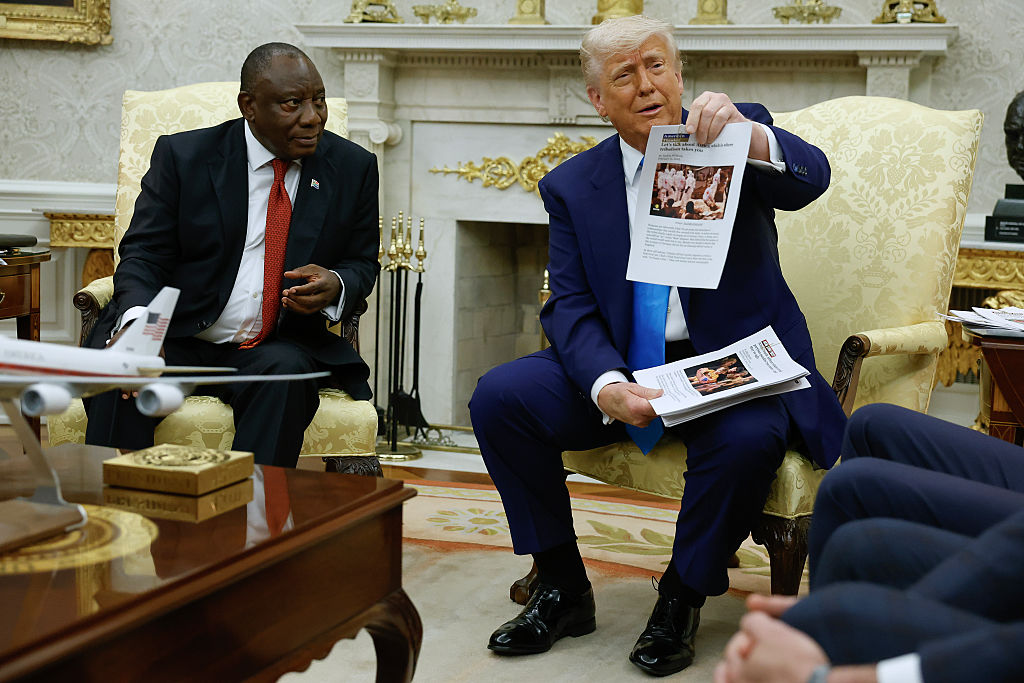One of the many pleasures offered by Lords of the Desert, which narrates the rivalry between Britain and the United States in the Middle East from the end of the second world war through to 1967, is the quotations that are liberally strewn across its pages. They have been culled from memoirs or official documents unearthed in British or US archives and testify to the research that has gone into this dense but consistently fascinating account.
Some reveal the deep complacency of influential individuals. Ralph Brewster, an American senator who undertook a round- the-world tour in August 1943 to investigate the progress of the war and report to President Franklin D. Roosevelt, was mistrustful of too much knowledge, telling a colleague:
I don’t think one day is enough to really give you the hang of a country. And if you spend much more than a day or two there, you’re likely to become a prejudiced native… But two days is just about right to make you a real expert.
Others are beautiful examples of the ancient art of the diplomatic put-down. A British official stationed in Tehran described Mohammed Mossadeq — the Iranian prime minister committed to reclaiming his country’s oil revenues, ousted in 1953 in an operation executed jointly by British and US intelligence services — as ‘a sort of Iranian Mahatma Gandhi, but less rational’.
Several illustrate perfectly the mindset of British decision-makers. Naturally, this evolved over the lengthy period that the book covers. But from the end of the second world war, through the final years of the British mandate in Palestine and the establishment of the state of Israel, the coming to power of Nasser in Egypt, the Suez crisis, and on to Britain’s retreat from the region at the end of the 1960s, one element is constant: a failure to comprehend quite how far and how fast the balance of power had shifted away from Britain.
When, in 1958, President Eisenhower deployed marines to Lebanon against the express wishes of London, Rab Butler, then home secretary, described the decision as ‘quite a blow to our prestige’. The year had already seen the collapse of the Hashemite regime in Iraq, the last British ally in the northern Middle East. Palestine, Egypt and Jordan had already been lost. Understatement can mask delusion, it seems.
The US officials described by Barr were motivated by a mixture of commercial realism, prejudice, fear of communism, ignorance and over-confidence. They do at least appear more competent than their British counterparts, whose shambling amateurism and self-importance repeatedly provoked Washington’s contempt and anger. The American opposition to British imperialism was not simply the reflex of a former colony or the competitive instincts of a rising power; it was also fuelled by frustration at what was perceived to be systematic maladministration. Americans who visited Egypt when it was still run by the British were revolted by the poverty in Cairo. They blamed the small number of senior administrators sent from the UK to run the chaotic but strategically crucial country, and mendacious policy-makers in London. This may not have been unjustified. Speaking of the soon to be independent Kuwait in 1961, Harold Macmillan admitted to his cabinet secretary that ‘what we are doing is getting the oil out of these territories for as long as the inhabitants remain fairly primitive’. Beyond that, the prime minister admitted, there wasn’t really a plan.
There is much else of value in this book: accounts of the secret machinations of spooks; pen-portraits of a series of fascinating characters both famous and obscure, and reminders of how many of the dilemmas facing decision-makers today also faced their predecessors. To send troops to Lebanon to prop up a distasteful ally and prevent civil war in 1958 might provoke a ‘wave of anti-western feeling in the Arab world’, the CIA director Allen Dulles warned. But to do nothing would show that the US was not willing to stand by her allies — a failure Moscow would certainly exploit.
A decade later, a British foreign secretary made a reluctant journey to Washington to explain shamefacedly why a phased withdrawal from the Gulf had to be accelerated. Somewhat ironically, given their efforts to reduce British influence (and profits) in the region over previous decades, the Americans, mired in Vietnam, were ‘profoundly dismayed’ by their cash-strapped ally’s weakness. Barr gives us the reported reaction of Dean Rusk, the US secretary of state: ‘For God’s sake, act like Britain.’
But that Britain was long gone. Quite what it left behind is still being debated. Sir Richard Turnbull, the UK’s penultimate high commissioner in Aden, told a visiting Denis Healey in 1965:
When the British Empire sank beneath the waves of history… it would leave behind only two monuments: one was the game of Association Football, the other was the expression ‘Fuck off’.
This article was originally published inThe Spectatormagazine.

























